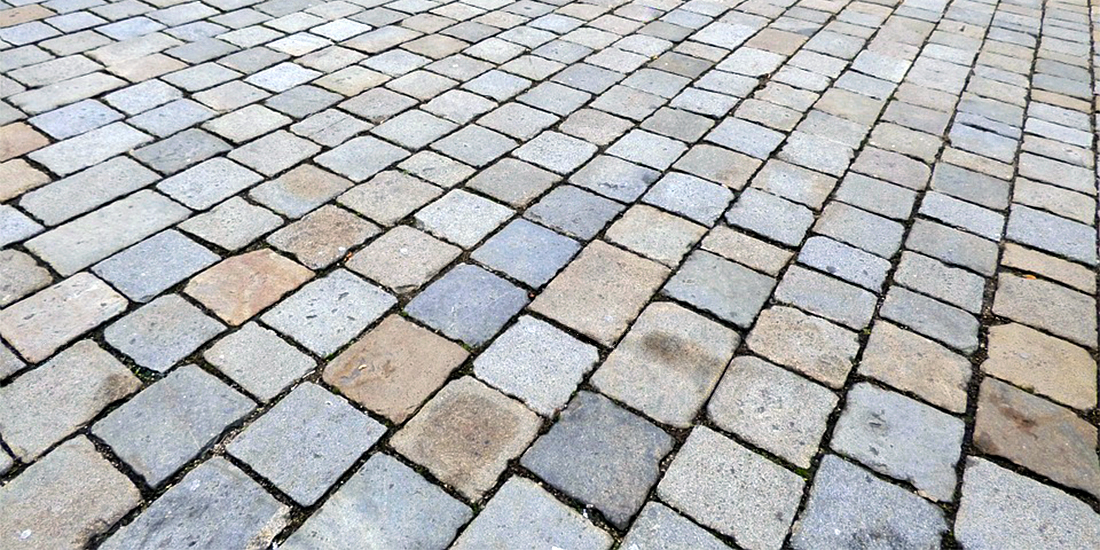
Q: I’ve noticed that many new townhomes around Seattle are using pavers instead of poured concrete for walkways, driveways, and parking spaces. Are there any benefits to using pavers?
A: What you’re noticing is the growing use of permeable interlocking concrete pavement (PICP) systems. These paver-based systems have three major benefits: they help builders comply with stormwater management regulations, offer more design flexibility than poured concrete, and are much easier to repair. Let’s take a closer look.
Stormwater Management
The city of Seattle, the state of Washington, and many other Seattle-area municipalities have stormwater regulations to protect people, property, and the environment from damage caused by stormwater runoff. Seattle takes stormwater very seriously and publishes stormwater management codes at seattle.gov.
Despite their similarity with pavers commonly used for landscaping patios and paths, PICP systems feature unique interlocking shapes with consistent spacers and are installed specifically to maximize drainage. These durable, yet permeable, surfaces help meet code by reducing the amount of surface stormwater runoff and hence pollutants entering our waterways. This makes them a great way to go green while meeting regulatory requirements.
Design Flexibility
Poured solid concrete lacks the design flexibility of concrete pavers. The many shapes, colors, sizes and installation patterns available with pavers means they can be placed and customized with unique design patterns that complement a diverse range of architectural and landscape styles. Using pavers can add a custom high-end look and texture that standard solid surface concrete simply lacks. There are so many choices!
Repairability
Because pavers are individual pieces, surfaces comprised of them can be changed, removed, or replaced much more easily than poured solid surfaces. If you have tree root issues or need to put in an electrical line, water pipe, etc., pavers can be pulled up with minimal effort and reset or replaced at the conclusion of your project with little noticeable effect. This can save you thousands of dollars and lots of migraines.
A Wise Alternative
It’s not just urban residential and commercial construction projects that are turning toward PICP systems. Homeowners are also increasingly opting to install permeable surfaces for driveways and walkways. With many cities adopting stormwater regulations, compliance will lead to more people adopting permeable surfaces, but even in places with fewer regulations some homeowners are already choosing PICP systems because they’re so customizable and great for the environment.
So, if you’re thinking about moving away from poured concrete, now is a great time to consider the promise and possibilities of pavers.
Laura Hoffman works at Mutual Materials, a member of the Master Builders Association of King and Snohomish Counties (MBAKS). If you have a home improvement, remodeling, or residential homebuilding question you’d like answered by one of MBAKS’ nearly 2,800 members, write to homework@mbaks.com.